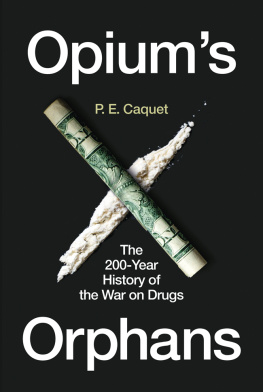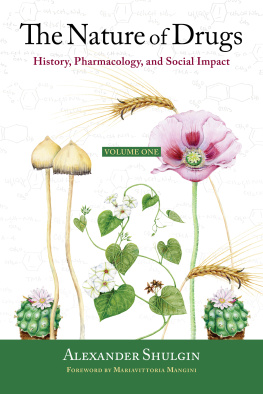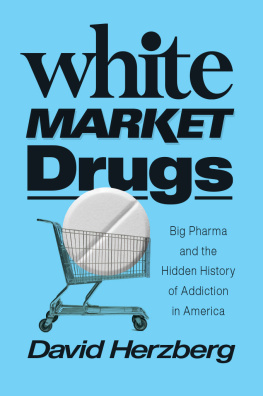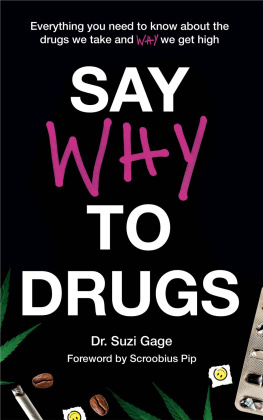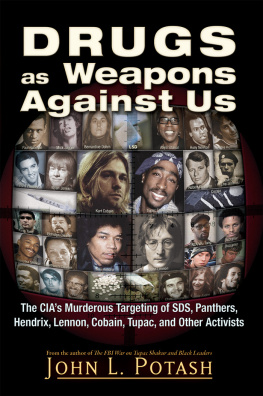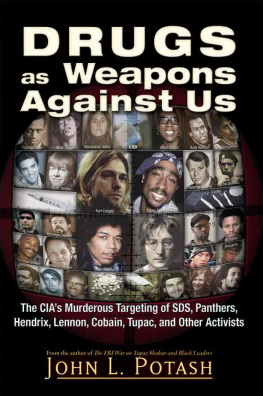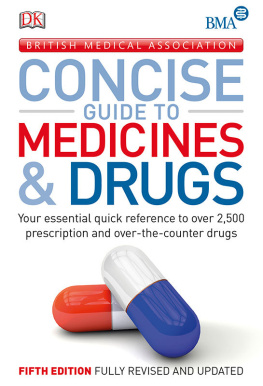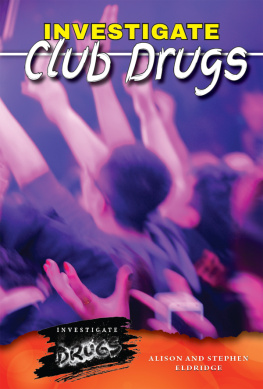
THE WAR ON DRUGS IN THE AMERICAS
The War on Drugs in the Americas brings together the history of the War on Drugs in the US and Latin America to reveal how, since 1914, when the US first criminalized the non-medical use of narcotics, the trade and violence associated with drugs has developed throughout the hemisphere.
This concise and accessible book provides an overview of the geographic, historical, economic, and social dimensions of the War on Drugs throughout the past century. Notable figures, popular drugs, competing theories, and significant historical events take center stage, as the story moves between macro analysis and micro details. Aside from infamous cartel leaders like Colombias Pablo Escobar and Mexicos El Chapo Guzman, the reader learns about equally important but lesser-known Latin American and US traffickers. In addition to counter-narcotics giants, readers learn about Law Enforcement Against Prohibition (LEAP), DEA agents working to fight pharmaceutical companies and distributors, cutting-edge researchers and politicians that have pushed for and against the war.
The War on Drugs in the Americas is essential reading for students studying Latin American History, International Studies, and Politics through its clear and objective narrative of the origins, impact, and debates behind the War on Drugs in the US and Latin America.
Christopher M. White is a Latin American History Professor at Marshall University in Huntington, WV. As a professor working in the state with the highest overdose rates in the country, his research is rooted in an evidence-driven approach toward explaining the War on Drugs.
First published 2020
by Routledge
52 Vanderbilt Avenue, New York, NY 10017
and by Routledge
2 Park Square, Milton Park, Abingdon, Oxon OX14 4RN
Routledge is an imprint of the Taylor & Francis Group, an informa business
2020 Taylor & Francis
The right of Christopher M. White to be identified as author of this work has been asserted by him in accordance with sections 77 and 78 of the Copyright, Designs and Patents Act 1988.
All rights reserved. No part of this book may be reprinted or reproduced or utilised in any form or by any electronic, mechanical, or other means, now known or hereafter invented, including photocopying and recording, or in any information storage or retrieval system, without permission in writing from the publishers.
Trademark notice: Product or corporate names may be trademarks or registered trademarks, and are used only for identification and explanation without intent to infringe.
Library of Congress Cataloging-in-Publication Data
Names: White, Christopher M., 1974- author.
Title: The war on drugs in the Americas / Christopher M. White.
Description: New York, NY : Routledge, 2020. | Includes bibliographical references and index.
Identifiers: LCCN 2019029016 (print) | LCCN 2019029017 (ebook) | ISBN 9781138952089 (hardback) | ISBN 9781138952096 (paperback) | ISBN 9781315667805 (ebook)
Subjects: LCSH: Drug control--United States--History. | Drug control--Latin America--History. | Drug traffic--United States--History. | Drug traffic--Latin America--History.
Classification: LCC HV5825 .W44 2020 (print) | LCC HV5825 (ebook) | DDC 364.1/77097--dc23
LC record available at https://lccn.loc.gov/2019029016
LC ebook record available at https://lccn.loc.gov/2019029017
ISBN: 978-1-138-95208-9 (hbk)
ISBN: 978-1-138-95209-6 (pbk)
ISBN: 978-1-315-66780-5 (ebk)
For John V. White, who ignited my interest in the war over 30 years ago, and has challenged me to think critically about it ever since.
There are so many people I want to thank for supporting me over the years. The first I want to recognize is a fellow historian of unparalleled character, whose life was cut short four years ago. On September 14, 2015, my former officemate from the University of Kansas, Dr. Ethan Schmidt, was murdered by a colleague of his at Delta State University in Mississippi. I read the acknowledgements of his two books and realized that Ethan made those sections a window into his heart and mind. In addition to family and scholars, Ethan thanked many of his fellow graduate students, including myself, for our role in his life and work. All of us from the basement of Wescoe Hall miss you very much, Ethan. I realize now why an acknowledgements section is so important.
The myriad people that affect us positively deserve a lasting presence in our lives. From my youth, Coach Chuck Purdy stands out most to me. He was the quintessential role model for middle schoolers. When I joined the Marine Corps in 1994, he was the only former teacher I told. While stationed overseas in Diego Garcia, I received a clipping of his obituary. I thought Coach Purdy was so healthy, but he must have given everything he had to his family and to us kids.
I spent my junior year of high school in Orizaba, Veracruz (Mexico). My host family, led by Queta, taught me that learning languages is a gift you give to yourself and others. I still carry the business card Queta handed me to give to my parents when I left, 28 years ago, on which she wrote: Your son is very good boy. Thank you. Queta. That card is my prized possession, because it has connected me to Queta over so many wallets. Over my many trips back to Orizaba since Quetas children (Alejandro, Miguel, and Rosita) have welcomed me and my family with open arms, and we have all become so important to one another across the USMexico boundary. Unfortunately, Orizaba and the state of Veracruz have become battlegrounds in Mexicos Drug War.
After Mexico, high school, and one year of college, I joined the Marines, hoping to become a police officer afterwards. However, at my first duty station, in the middle of the Indian Ocean, on the island of Diego Garcia, I met my future wife, who was in the Navy at the time. I was taking a college course on English Rhetoric when we met, and as she was an English major in college before the Navy, I asked her to help me with a composition. She spent five hours with me in her office on a Sunday, and her command of the English language impressed me so much that I knew then the value of a college education. I have never met anyone like her. She is more than a life partner: she is an inspiration for me and many others. Kim is now a Social Work professor at Marshall University, where she does cutting-edge research on physicians who provide Medication Assisted Treatment (MAT).
We both went to Humboldt State after the military, and there I met Sterling Evans, the Latin American historian. I was a Spanish major at the time, but Sterling showed me how to achieve a different goal, and I am so thankful for his guidance. Like him, I went to the University of Kansas for graduate work. At KU, I was fortunate to receive guidance and financial support from the universitys Center for Latin American Studies, led by Dr. Elizabeth Kuznesof, who has been an inspiration to her students for decades. I could not have made it through without her, and I value every chance I have to see her. My advisor, Charley Stansifer, decided to take me on as one of his last graduate students before retiring. I cannot thank him enough for all he did for me before he settled down. He passed in 2016 and will be missed by all. There are so many others I would like to thank as well, including Lorraine Bayard de Volo, Gregory Cushman, Brent Metz, and Ted Wilson at KU, plus so many of my Humboldt State professors, such as Lilianet Brintrup, Rosamel Benavides, Jeffrey White, Steve Brusca, and Dan Faulk. Dr. Benavides students know just how incredible it is to learn from him, and I thank him so much for who he is and what he does. Dan Faulk, my first Political Science professor, taught me how to think critically on a level this former Marine needed, fresh out of Camp Pendleton in 1998.


